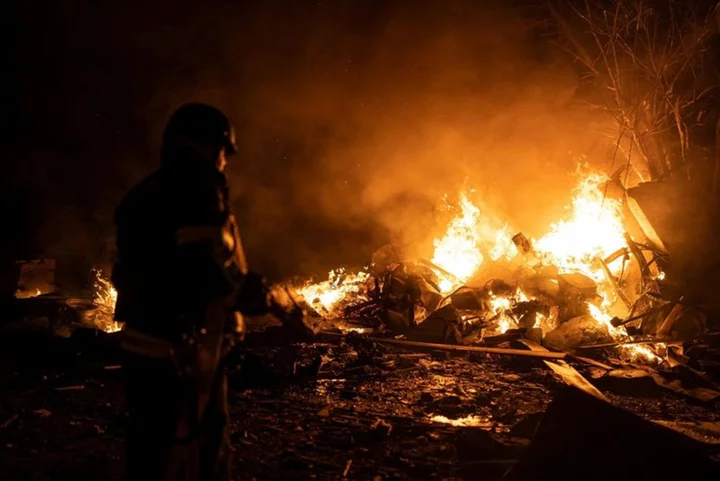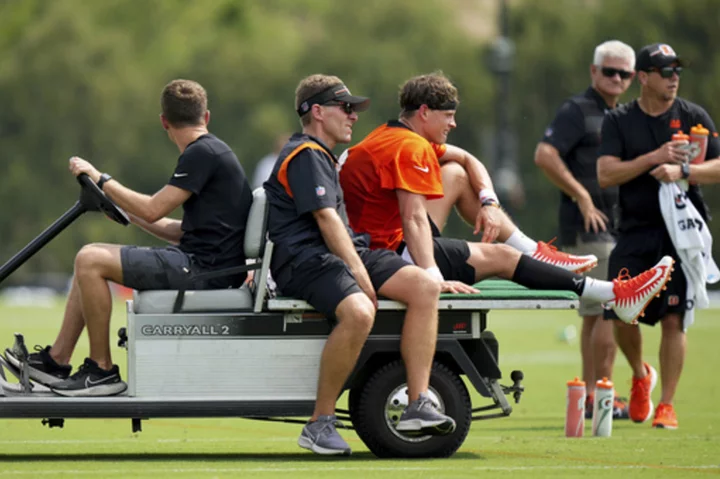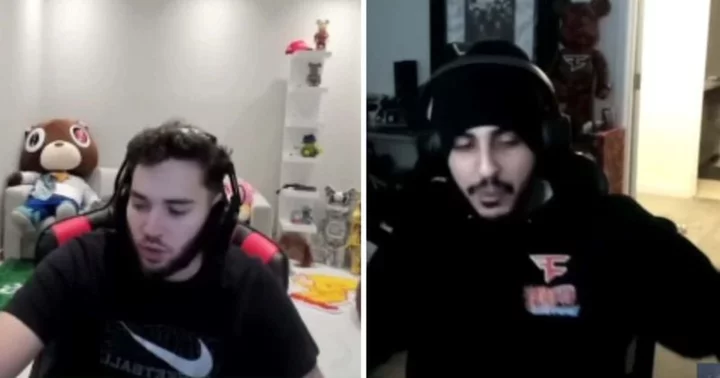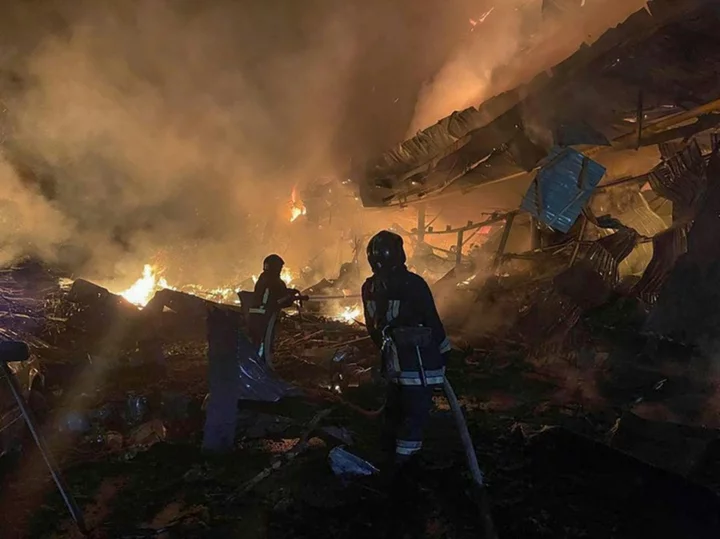By Gleb Garanich and Sergiy Karazy
KYIV (Reuters) -Ukraine said on Tuesday it had shot down six Russian hypersonic Kinzhal missiles in a single night, thwarting a superweapon Moscow had previously touted as all but unstoppable.
It was the first time Ukraine had claimed to have struck an entire volley of multiple hypersonic missiles, and if confirmed would be a dramatic demonstration of the effectiveness of newly deployed Western air defences.
The six Kinzhals, ballistic missiles which travel at up to 10 times the speed of sound, were among a volley of 18 missiles Russia launched at Ukraine overnight, lighting up Kyiv with flashes and raining debris after they were blasted from the sky.
The commander-in-chief of Ukraine's armed forces, Valeriy Zaluzhnyi said all had been successfully intercepted. There was no immediate comment from Russia.
City authorities in the Ukrainian capital said three people were wounded by falling debris.
"It was exceptional in its density - the maximum number of attack missiles in the shortest period of time," Serhiy Popko, head of Kyiv's city military administration, said on the Telegram messaging app.
Zaluzhnyi said his forces had intercepted the six Kinzhals launched from aircraft, as well as nine Kalibr cruise missiles from ships in the Black Sea and three Iskanders fired from land.
Earlier this month, Ukraine claimed to have shot down a single Kinzhal missile over Kyiv for the first time, using a newly deployed U.S. Patriot air defence system.
Previously, the ability of Patriots to intercept Kinzhal missiles was only theoretical. Hitting six at once would suggest it could be a reliable defence, rather than a lucky shot.
President Vladimir Putin, who unveiled the Kinzhal as one of six "next generation" weapons in 2018, has frequently touted it as proof of world-beating Russian military hardware, capable of taking on NATO.
The Kinzhal, whose name means dagger, can carry conventional or nuclear warheads up to 2,000 km. Russia used them in warfare for the first time in Ukraine last year and has only acknowledged firing them on a few occasions.
With Ukrainian forces preparing to go on the offensive for the first time in six months, Russia is now launching long-range air strikes at the highest frequency of the war.
It has launched eight drone and missile volleys so far this month, compared to weekly during the winter and a lull in March and April. Kyiv says it has been shooting most down.
"UNDER CONTROL"
Early on Tuesday, air raid sirens blared across nearly all of Ukraine, and were heard over Kyiv and its region for more than three hours.
"The enemy's mission is to sow panic and create chaos. However, in the northern operational zone (including Kyiv), everything is under complete control," General Serhiy Naev, Commander of the Joint Forces of the Armed Forces, said.
The past week has seen Ukraine make its biggest gains on the battlefield since last November, recapturing several square kilomtres of territory on the northern and southern outskirts of the battlefield city of Bakhmut. Moscow has acknowledged that some of its troops have retreated but denies that its battle lines are crumbling on the city's flanks.
Kyiv says those advances are localised and do not yet represent the full force of its upcoming counteroffensive, planned to take advantage of hundreds of modern tanks and armoured vehicles sent by the West this year.
A Ukrainian counteroffensive would bring the next major phase of the war, after a huge Russian winter offensive that failed to capture significant new territory despite the bloodiest ground combat in Europe since World War Two.
Moscow launched its full-scale invasion of Ukraine in February last year and now claims to have annexed around a sixth of its neighbour's territory. Ukraine turned back Russian troops from the outskirts of Kyiv early in the war and recaptured territory in two major counteroffensives in the second half of 2022, but has kept its forces on the defensive since November.
Russia says its invasion was necessary to counter a threat to its security posed by Kyiv's close ties to the West. Ukraine and its allies call it an unprovoked and unlawful war of conquest, and Kyiv says it will not stop fighting until all Russian troops leave its land.
(Additional reporting by Aleksandar Vasovic, Dan Peleschuk, Maria Starkova, Lidia KellyWriting by Peter Graff; editing by Frank Jack Daniel)









